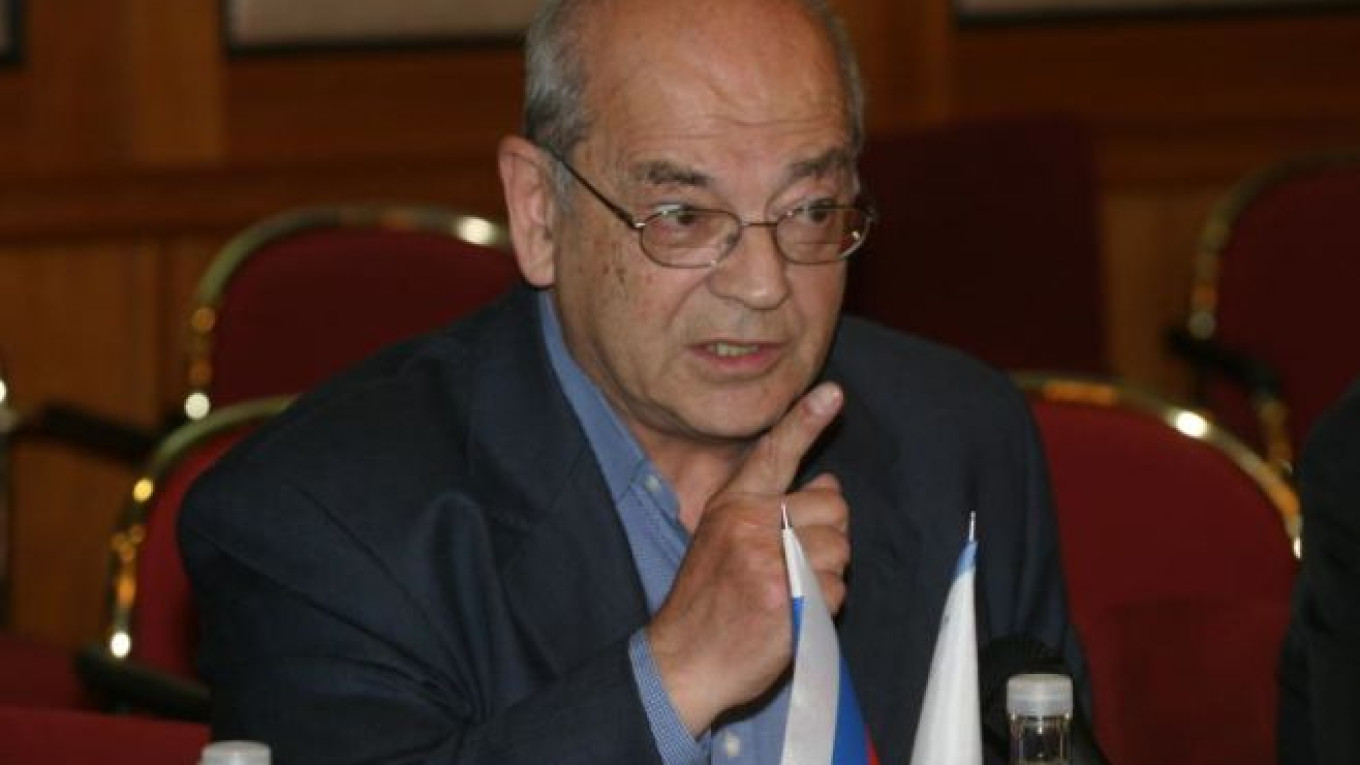One of my co-authors on a recent study is a high-school student. The study, published in a good scientific journal, was done at the Summer School of Molecular and Theoretical Biology in 2013. Unlike standard science camps, these schools involve real research in experimental and computer labs. They are just one of many programs supported by the Dynasty Foundation.
Others are post-doc grants in math, physics and biology; lecture courses; science festivals all over Russia; publishing popular science books; and conferences of young scientists. The planned 2015 budget for Dynasty's programs and projects was 435 million rubles, according to the foundation's website.
However, on Monday the Justice Ministry labeled Dynasty a "foreign agent." Something tells me that this was not the decision of a low-level clerk. Russia's Foreign Agents law was adopted in 2012 and requires all nongovernment organizations that are engaged in a loosely defined political activity and receiving funds from abroad to label their work as done by foreign agents. The law has invited widespread criticism from NGOs in Russia, as well from governments across the world.
Dmitry Zimin, who founded Dynasty in 2002, is not your usual oligarch. The source of his fortune is not oil or other natural resources, but technology. He co-founded the cell phone company VimpelCom in the 1990s. He has spent a considerable fraction of his fortune not on yachts, chalets and football teams, but on scientific philanthropy.
On top of that he is not shy when it comes to expressing his opinions. All this is, of course, deeply suspicious. Yesterday, Zimin announced that as a result of the "foreign agent" label, he would no longer fund Dynasty's activities and that the fate of the foundation will be decided at a board of directors meeting on June 8.
The foreign agent label and the withdrawal of Zimin's support will seriously damage Dynasty's activities. In addition to a heavy paperwork burden — Dynasty has a very lean office and its spending on internal logistics is spectacularly low — it will make local authorities unlikely to support Dynasty-funded events. Can you imagine a city mayor permitting a science festival supported by a foreign agent?
Naturally, Dynasty has received a lot of support from the scientific community. The Science Council of the Education and Science Ministry and the Commission on Pseudoscience and Research Fraud of the Russian Academy of Sciences issued statements condemning the action.
One of the most respected scientific journals, Nature, published a sympathetic report. Open letters were signed by hundreds of researchers, and many of them wrote that Dynasty grants had changed their lives, allowing them to continue doing research in Russia.
Admittedly, Dynasty is not the only foundation supporting science. The Potanin foundation provides student stipends, Oleg Deripaska's Volnoe Delo gives grants to young scientists from the Moscow State University, and there are some other examples.
But Dynasty is unique in the diversity of its activities and the way they are organized. Its programs are carefully considered by the board of directors, all individual grant applications are peer-reviewed, and its annual reports, including financial information, are published on its site.
It used to be the yardstick against which the performance of other foundations, both private and state, were measured. If it is closed, the damage to Russian science and education will be irreparable.
Who cares? Losing to Canada in the final game of the Ice Hockey World Championship is much more important.
Mikhail Gelfand is vice director for science of the Institute for Information Transmission Problems of the Russian Academy of Sciences and professor at the Faculty of Bioengineering and Bioinformatics at the Moscow State University.
A Message from The Moscow Times:
Dear readers,
We are facing unprecedented challenges. Russia's Prosecutor General's Office has designated The Moscow Times as an "undesirable" organization, criminalizing our work and putting our staff at risk of prosecution. This follows our earlier unjust labeling as a "foreign agent."
These actions are direct attempts to silence independent journalism in Russia. The authorities claim our work "discredits the decisions of the Russian leadership." We see things differently: we strive to provide accurate, unbiased reporting on Russia.
We, the journalists of The Moscow Times, refuse to be silenced. But to continue our work, we need your help.
Your support, no matter how small, makes a world of difference. If you can, please support us monthly starting from just $2. It's quick to set up, and every contribution makes a significant impact.
By supporting The Moscow Times, you're defending open, independent journalism in the face of repression. Thank you for standing with us.
Remind me later.


